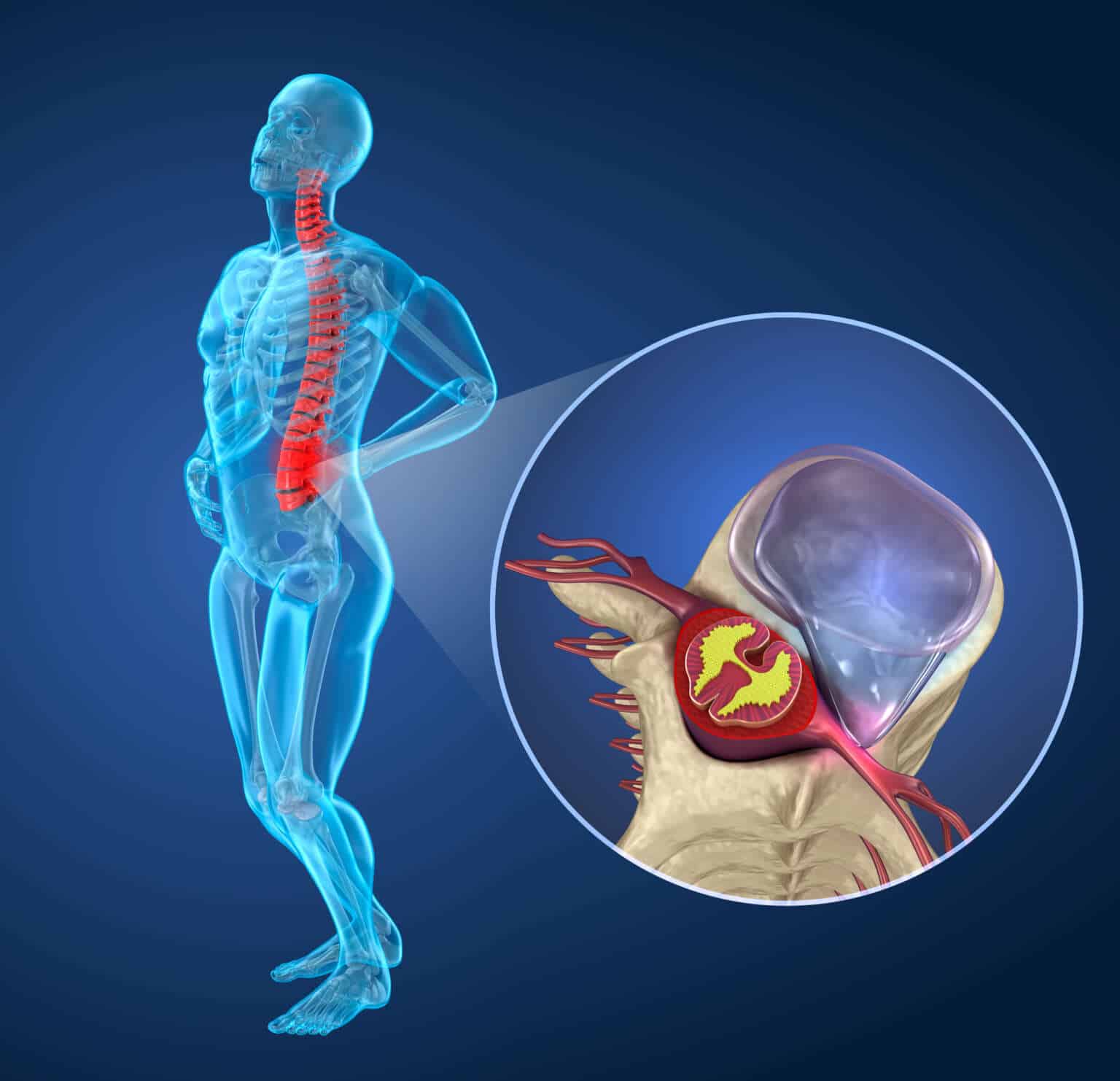What are the Symptoms of a Herniated Disc?
A herniated disc is often accompanied by intense pain, which may radiate throughout the body if the nerves in your spinal cord are affected by it.
Other common symptoms include:
Arm or Leg Pain
A herniated disc can cause pain in your upper back, neck, or shoulders as well as in one or both arms. You may also experience pain along the outside edge of your lower back.
Numbness or Tingling
Pressure on a nerve from a herniated disc can cause numbness or tingling sensations in different areas of your body, including your arms and legs.
Weakness
If you feel weakness in any part of your body when standing up from sitting down, this could be caused by pressure on nerves caused by a herniated disc.

Common Causes of Herniated Disc
The most common cause of a herniated disc is disc degeneration. As we age, our spine loses its ability to support itself because the disks become more brittle and less elastic over time.
This makes someone more susceptible to injuries like a herniated disc, since the discs are less able to absorb shock from everyday activities like walking or running which can lead to further degeneration over time if left untreated.
Known Treatments for Herniated Discs
Non-Surgical Treatment
Initial care for a herniated disc may include rest, ice, heat, and over-the-counter pain relievers. Some doctors will advise the patient to just maintain a low activity level until the pain subsides.
Surgical Treatment
If the pain does not improve after several weeks of conservative treatment, surgery may be recommended. The type of surgery will depend on the location of the herniated disc and the severity of the symptoms.
